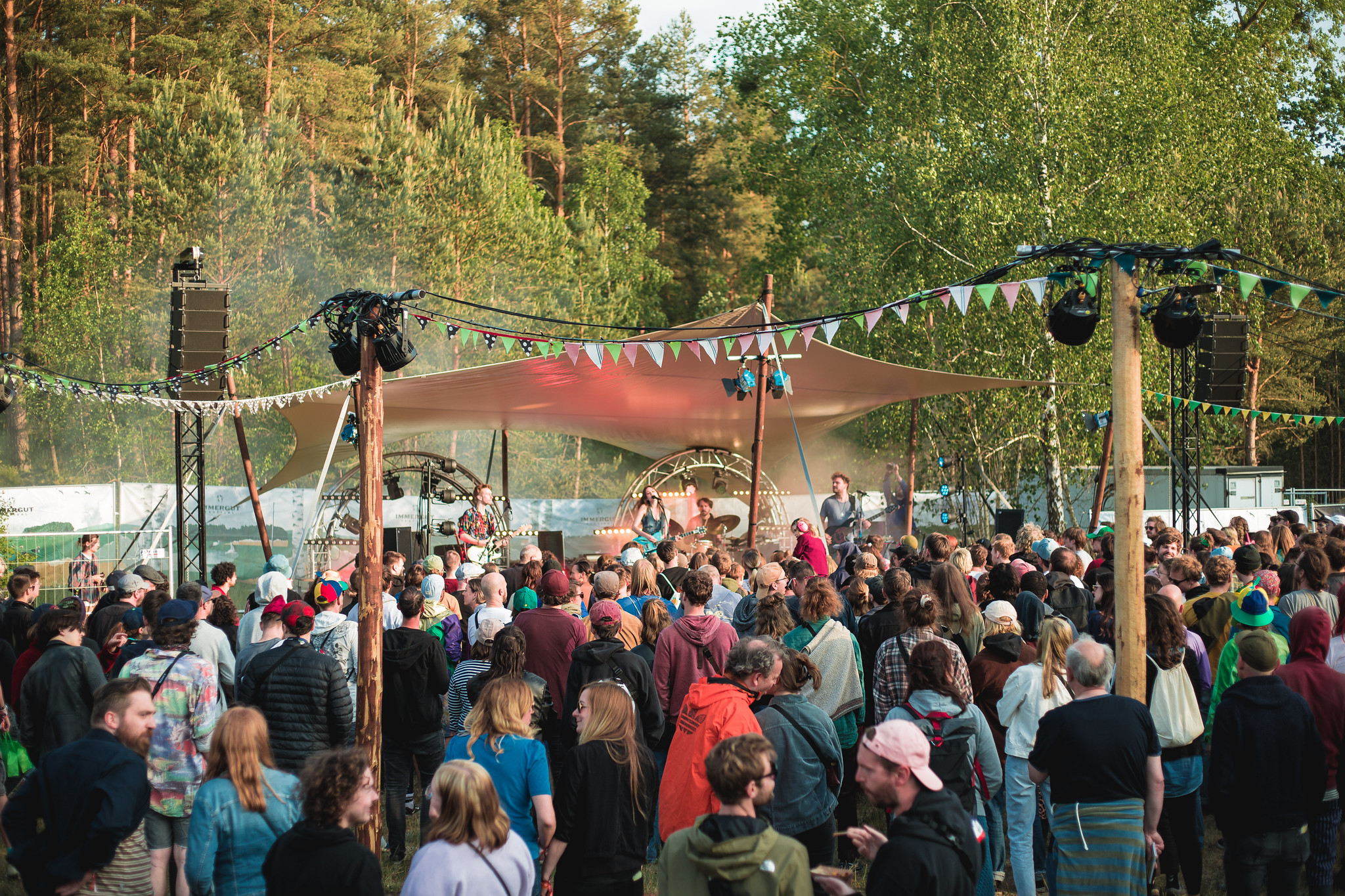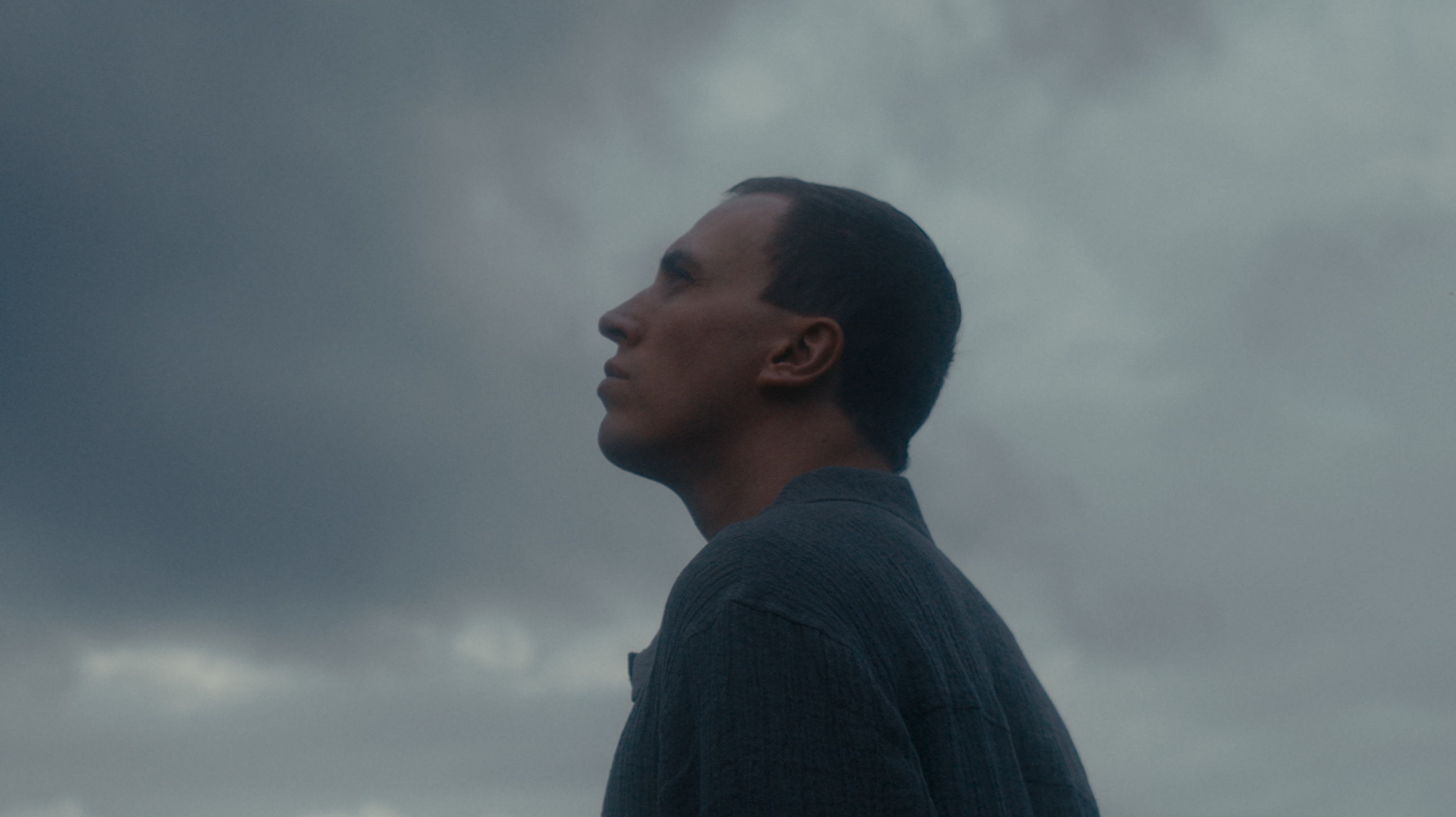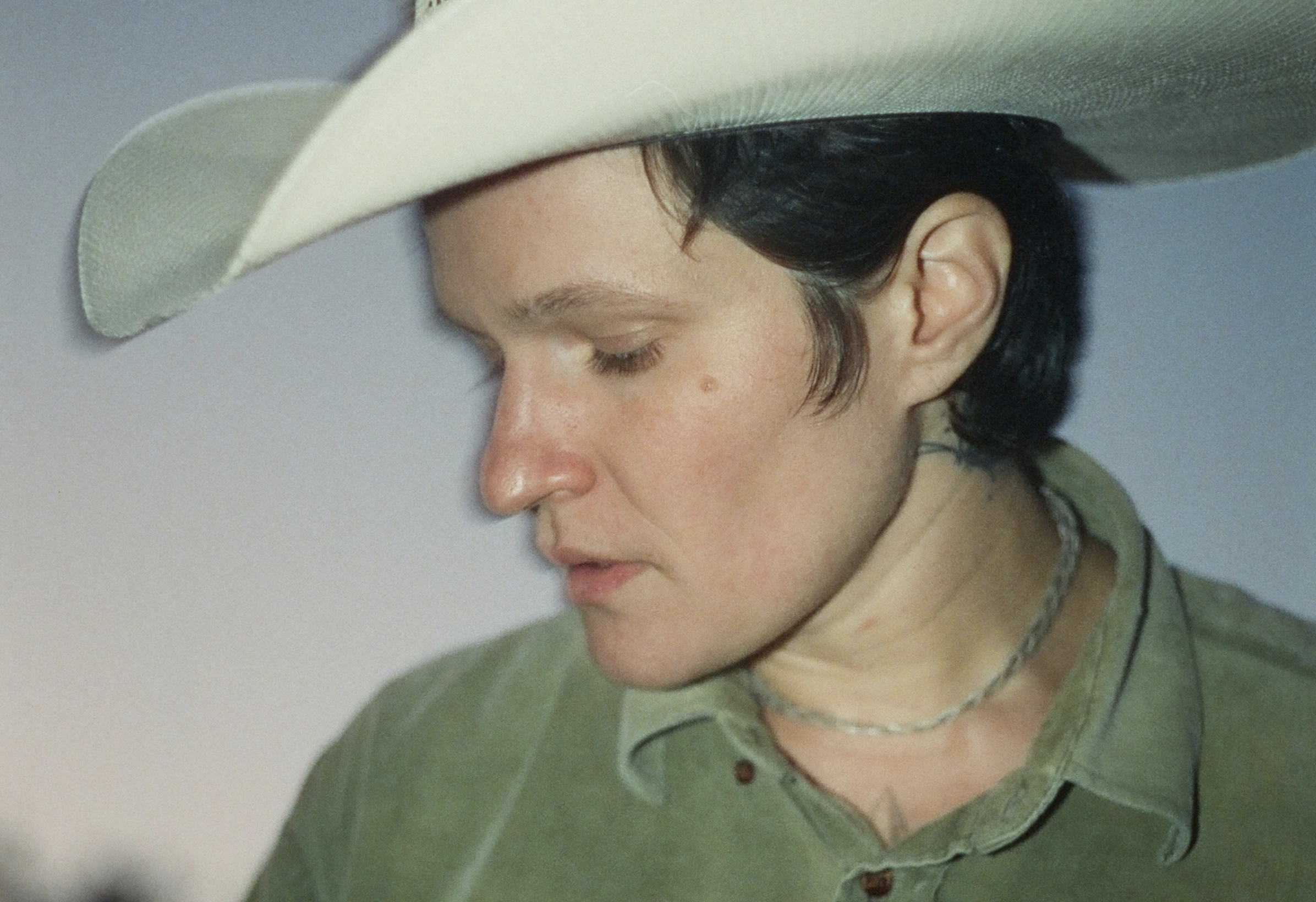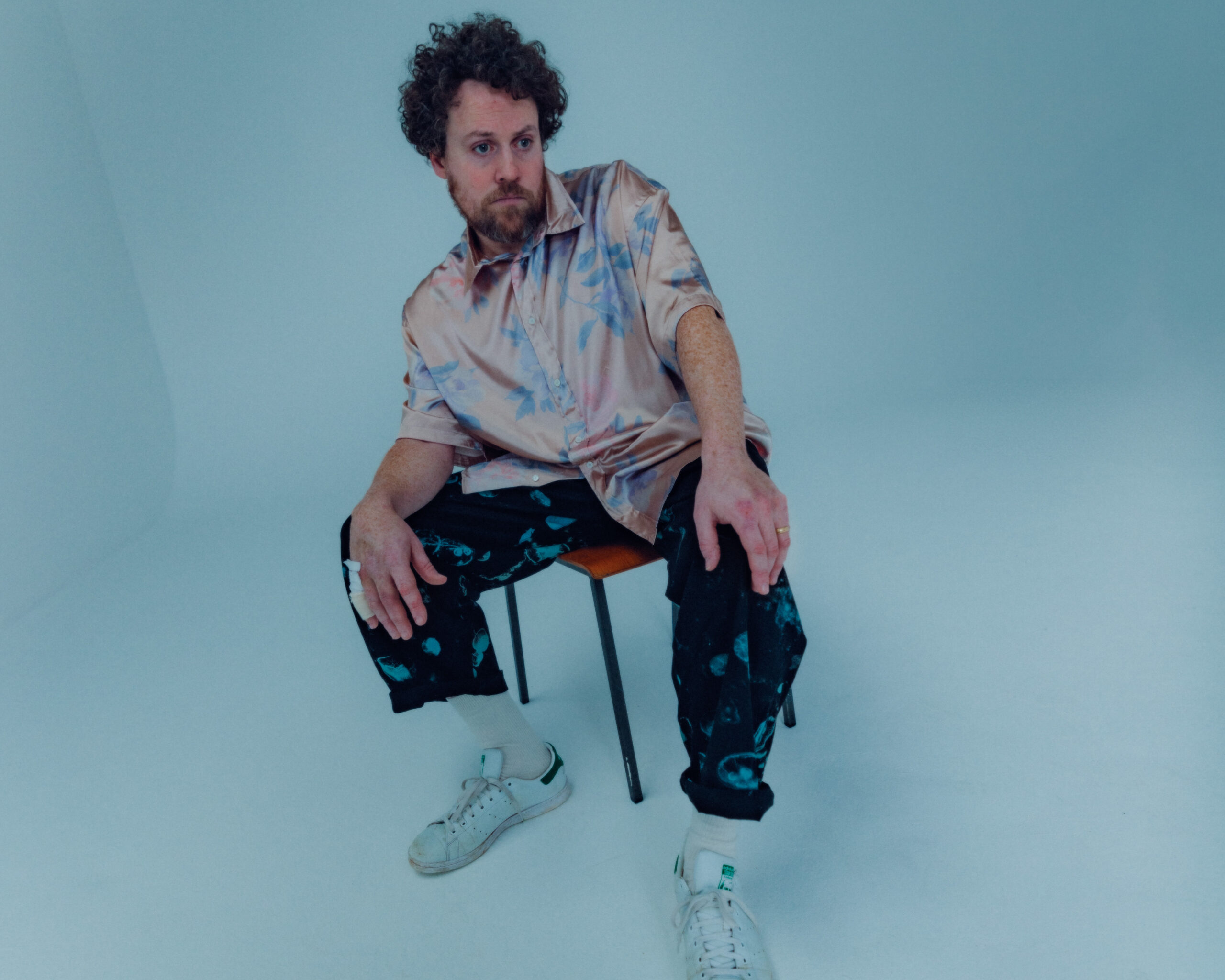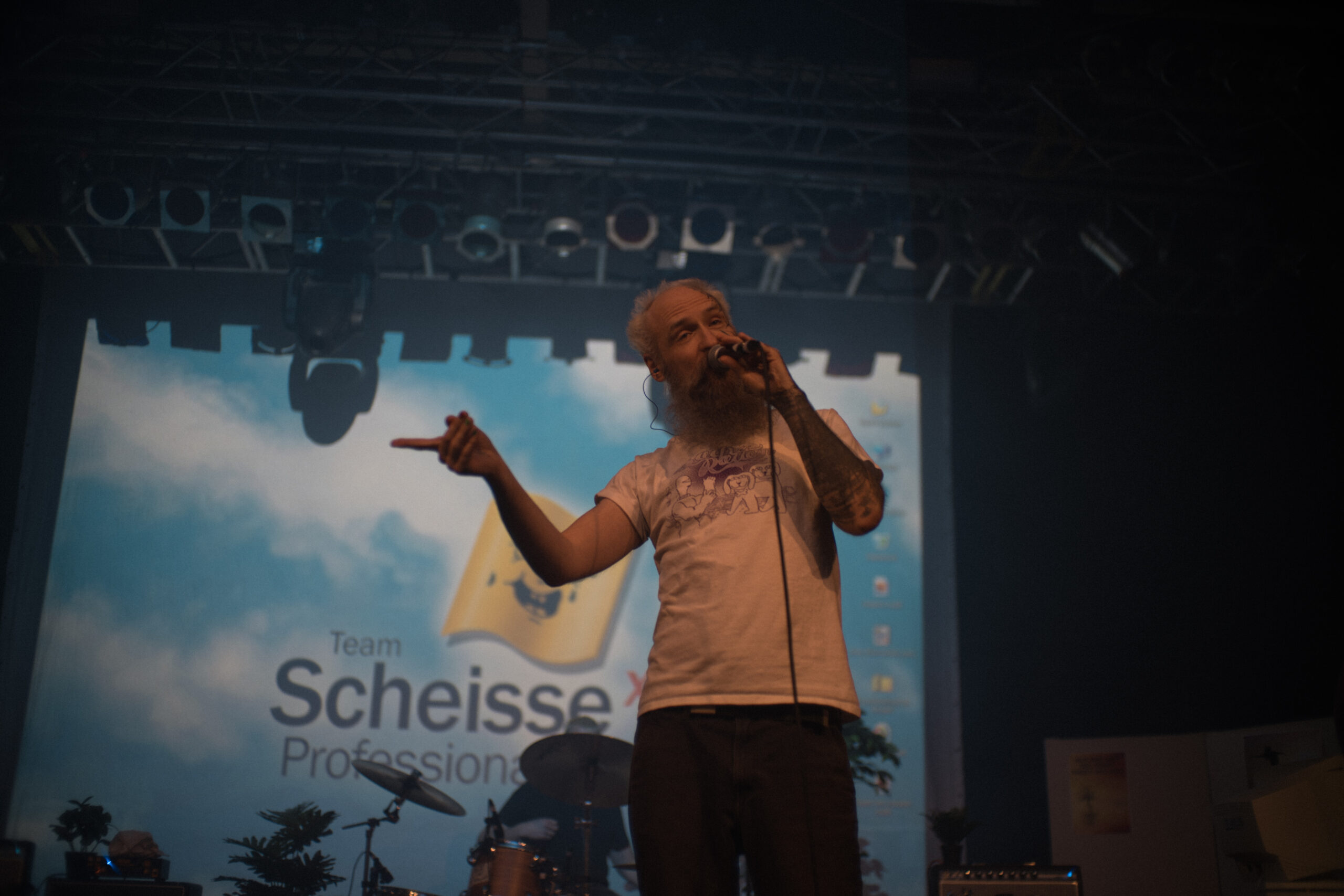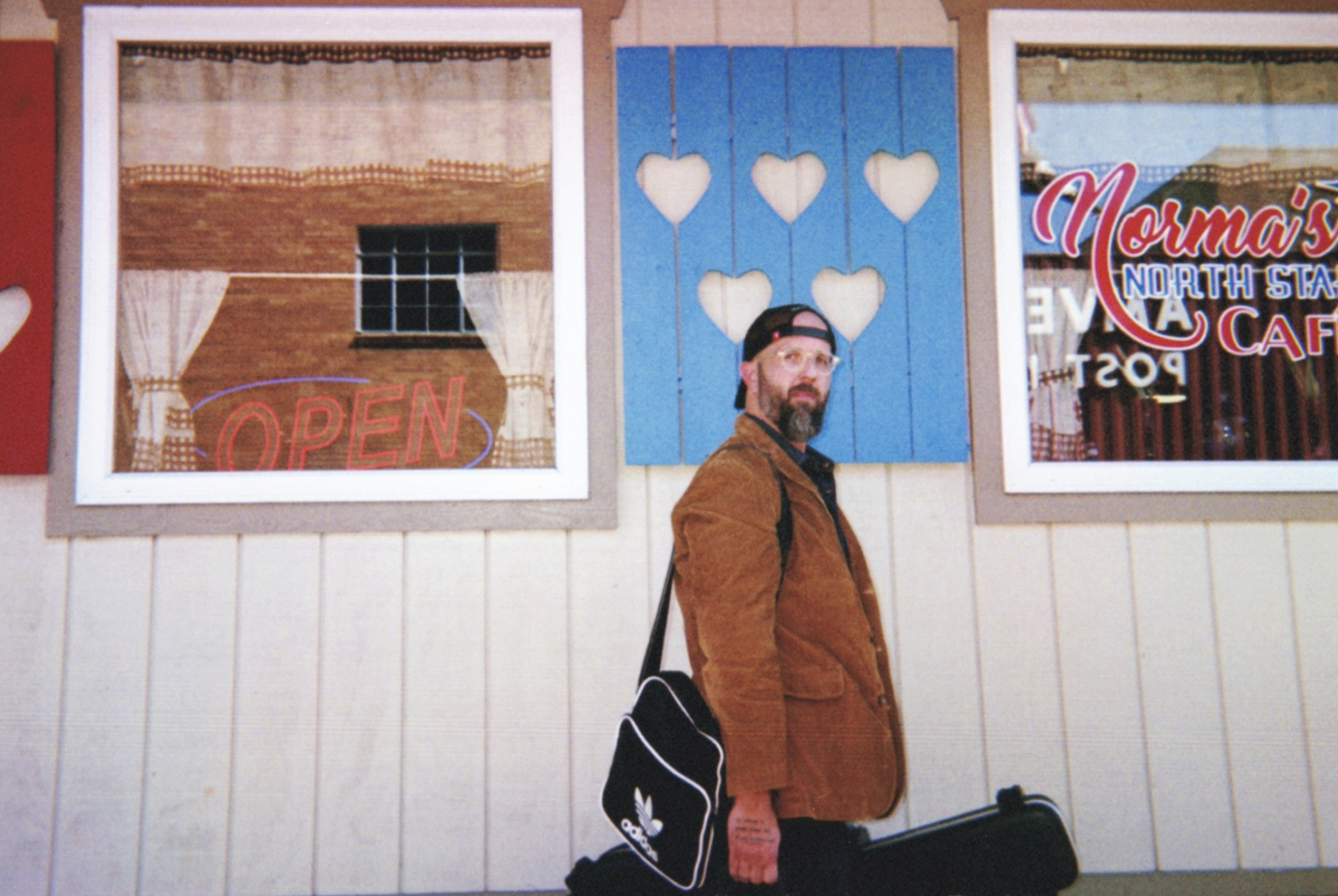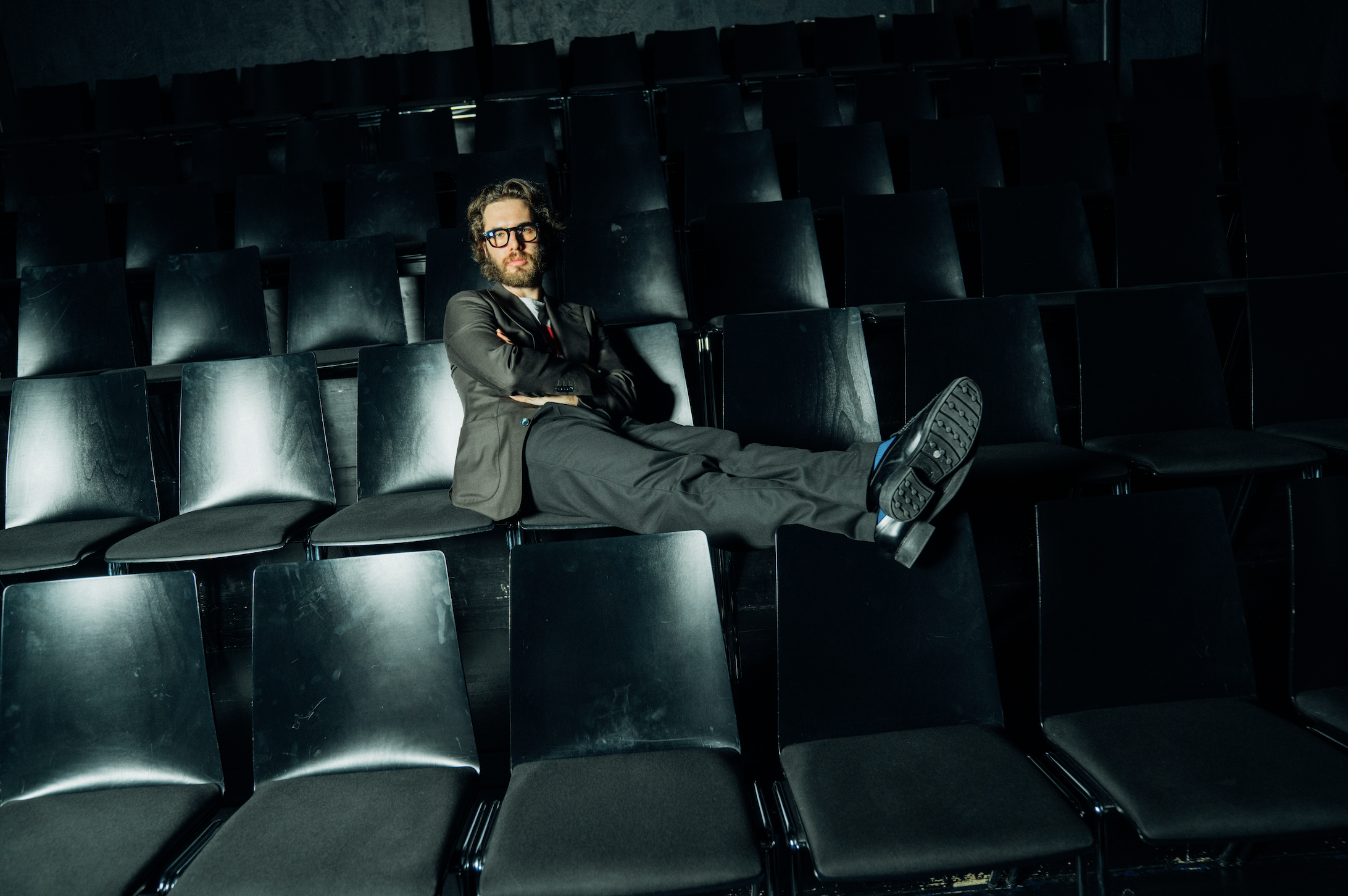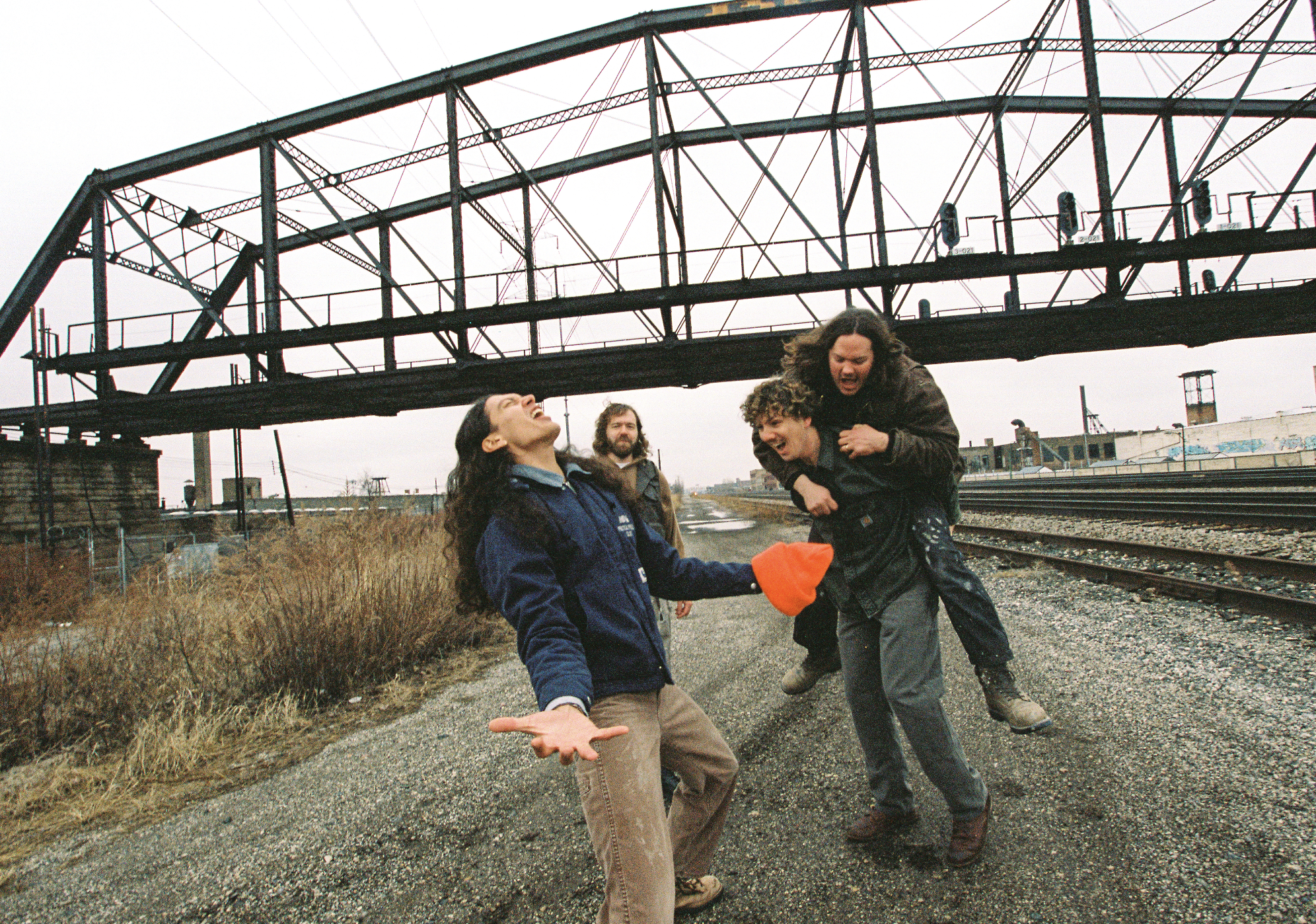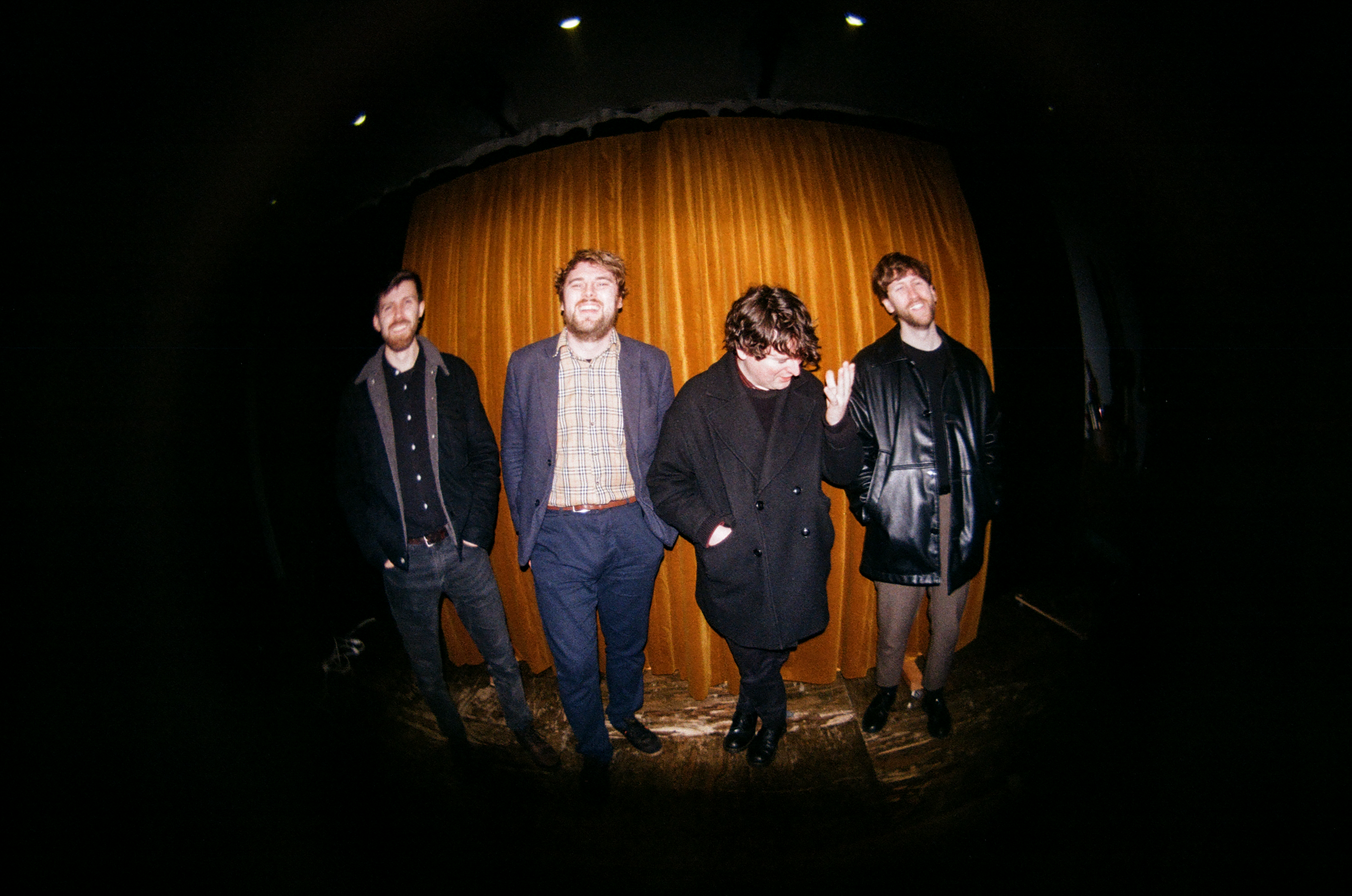Wie bitte, Gilla Band? Eine Gruppe, die sich voller Freude dem Werk einer österreichischen Sängerin aus den Siebzigern widmet? Die mit der deutschen Version von Voulez-vous Coucher Avec Moi (Lady Marmalade) bekannt wurde? Das wär mal was. In Wahrheit nannten sich die Herren, um die es hier geht, anfangs Girl Band. Unter diesem Namen entstanden die Alben Holding Hands With Jamie (2015) und The Talkies (2019). Warum das nun nicht mehr so ist, erklären Dara Kiely (Gesang) und Alan Duggan (Gitarre) im nachfolgenden Interview, das sie aufgrund von Geschäftsterminen von der britischen Hauptstadt aus führten.
Entscheidend ist natürlich die Musik. Mit ihr haben die Jungs zu Hause in Dublin das vorweggenommen, was Fontaines D.C. oder The Murder Capital zu Erfolgsthemen machte. Ihr Stil ist im Post-Punk der Zeit um 1980 verwurzelt, aber man sollte sie nie und nimmer als Adepten von Joy Division oder Gang Of Four verunglimpfen. Sie verarbeiten Einflüsse aus Rock und elektronischer Musik in einem und setzen auf Forscherinstinkt. Während des jüngsten Lockdowns haben sie unzählige Alben aus der Vergangenheit aufgesogen. Das Ergebnis ist Most Normal, ein drittes Album, mit dem sie der trägen Menschheit den Marsch blasen. Hier regiert Krawall, es wird laut und antagonistisch. Bis zum Anschlag. Die Gilla Band ist als Aufmunterungsinstanz zwingend erforderlich. Nehmt sie!
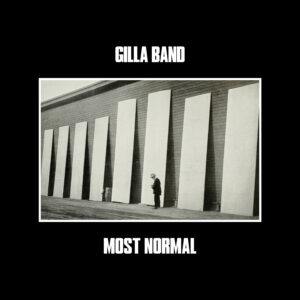 You‘re in London now to do some work. For you as Dubliners, what is it like to travel to the UK these days?
You‘re in London now to do some work. For you as Dubliners, what is it like to travel to the UK these days?
Alan: With gear and all our backline stuff it‘s a nightmare. You‘ve got to get a carnet, that‘s really expensive. We don‘t need visas or anything like that, but it‘s shite, a real fucking pain in the arse, I must say.
Life is different now. How did the pandemic influence your work during the recordings?
Alan: In 2020 we all turned pretty much 30 that year. There is a change coming from the twenties and going into the thirties of your life. Being in lockdown in that period was a bit strange. Coming out of the pandemic we feel a little older. What was great during the pandemic was that we could go down to our rehearsal space to hang out there quite often. We haven‘t really done that in a long time.
No complaints really.
Alan: I felt it was easier for me to be in lockdown compared to other people who are younger. I teach in a college, there‘s lots of 19 to 21-year olds. That‘s really rough, you‘re missing all this time where you‘d be going out to gigs and clubs. For me it‘s different, I don‘t go to them as much anymore because I see my band all the time. (laughs) And then coming out of the pandemic we‘ve started doing shows again travelling around Europe. We‘ve had to fly for all the festivals, that‘s been a nightmare because of Covid. All the airports are just a disaster to get around. The main thing that was productive for us was that we‘ve got to finish a record over the lockdown.
Since you‘re mentioning airports, there‘s a song on the new album called Capgras in which you express a strong dislike towards Ryanair. At the end of the song you talk about football. What‘s the train of thought here?
Dara: If you‘ve ever come across a guy called Ray Price, he‘s a country singer from the 50s and 60s, he‘s got an amazing song called Night Life. The whole band play a track and the level is so down that he does a spoken word thing over it. He introduces the band while the whole track is playing. We loved the idea, so I made thirty or forty takes at home of just trying to do this spoken word thing over the sound of the songs. And the way I write lyrics for the band over lockdown would be that I write my own song and then pick little bits from those songs and put them into our record. There was a track I wrote called I Hate Ryanair and we‘ve put that in the song. And it‘s a cliched thing to say ,At the end of the of the day it‘s just football‘. It‘s a little crap joke, nothing deep or serious.

Post Ryan ends with the line „Now I can‘t get out of bed again, I get inevitable depression when I do nothing.“
Dara: That was a really tough song to write for many reasons. We had the first part for a year and a half and we tried a lot things to get to the second part. Initially the whole album was supposed to be like a dreamlike thing, it was a very loose idea of it being a dream. I wrote in that kind of way for the first half. Usually I write strange indirect stuff, but the guys in the band wanted it to be more direct in that track, so that came up. I got the melody with the guys and went home and did my work on it. I was really embarrassed about it. When I showed it to Adam I had to leave the room because of the lyrics, it felt uncomfortable. But the lads loved it. To them it sounded like a true statement. I‘ve never written that directly in any of the tracks.
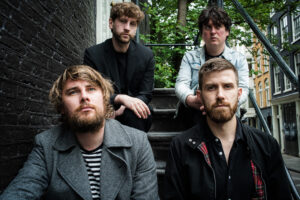 What was the initial idea you had in your mind when you made your first EPs in the 2010s? I read that you didn‘t want to sound like The Strokes or The Libertines because their music already existed.
What was the initial idea you had in your mind when you made your first EPs in the 2010s? I read that you didn‘t want to sound like The Strokes or The Libertines because their music already existed.
Alan: The old band we used to be in was terrible, really bad and it was trying to be The Strokes. I really really love that band, but there are so many groups doing that kind of thing and doing it really badly as we were. When that ended we as a band started listening more to the weirder side of post punk. It was just a lot more exciting. Bands in Ireland were not doing that. If you listen to James Chance, Theoretical Girls or DNA, they don‘t really sound anything like each other, they‘re just abrasive and that was freeing. It‘s not a ton of chords, it‘s just a groove that‘s moving. We all got into music at the same time, whether that would be No Wave or whether that would be techno or psych rock.
Dara: I remember we showed each other stuff when we were 19. I remember hearing The Birthday Party for the first time. I knew Nick Cave a little bit, but that Live 1981-82 record just blew my head off. I had to listen to it each day. And then music documentaries were a big thing for me as well, finding out who Scott Walker is, his trajectory from The Walker Brothers to albums like Bish Bosh. We‘ve constantly showed each other tracks, we still do. You start with James Chance, it sounds like nothing in the real world. Suddenly you listen to Ornette Coleman. It felt really great that people in the band were doing the same thing and liked it for the same reason themselves.
Anyone you‘ve been into during the making of the new record?
Alan: The drum beat in Post Ryan is taken from A Flock Of Seagulls. I remember I was listening to that song I Ran on the way down to the space, the momentum in that song is so good! We said let‘s start with that tempo, then build it from there. A big talking point throughout from a stepback perspective was Earl Sweatshirt‘s Some Rap Songs. That album is quite short, it‘s fast and you just jump from one song to another. There are these filter sweeps that are happening over the track, the whole thing‘s really mangled and it just keeps moving. During the lockdown, when we were doing the merch and shipping it ourselves, we were up at Dara‘s, he was going through 500…
Dara: …1001 albums, I tried to listen to that chronologically (laughs), I got as far as 1973, from 1955 or something, I found so much good stuff, that was a big influence on my writing, the idea to be able to pick up ideas from all these different records.
Alan: Low and Double Negative was a big one. Some Joe Meek stuff as well with a real high-pitched vocal, some hyperpop and that super distorted high vocal thing as well. All of us have been exposed to different stuff and coming in with different ideas.

I like the way how you work with electronic elements as a rock band. There was a time when that form of fusion wasn‘t allowed. In the 80s rock and electronic music were treated as two things, it was handled separately like in a police state. In the early days of your band you‘ve covered a song by Blawan. Did you go deeper electronic music during the lockdown?
Alan: For me something that was really fun over the lockdown was getting into synthesis and learning more about synthesizers and discovering artists like Raymond Scott and the Manhattan Research thing. Hearing all these bleepy bloops, that whole collection of works is so cool and fun. You‘ve got a sequencer and you‘re pitching into notes, but they‘re just a little off. It‘s not perfectly in tune but it‘s consistent. That‘s how electronic music became really fascinating for me.
Dara: I was quite into that Raymond Scott thing as well. I like electronic music a lot, I know what I like when I hear it. Adam and myself like to dive through those things. I like to shuffle The Beatles all about too (laughs)…
Damn! I thought: Finally there‘s a band coming from the British Isles that is not influenced by The Beatles. I was wrong, it seems. Ah, bummer!
Dara and Alan: (loud laughter)
Alan: It‘s always been a constant talking point for us as a group. They‘re always going to be an influence, we love them. We listened to a lot Wings stuff down at the space as well, songs like Let Me Roll It. We saw Paul McCartney at Roskilde in 2015 I think, it was such an amazing show.
Dara: He played Temporary Secretary. I thought never in a million years he would do that, but four songs in he did. No one in the audience reacted to it because it‘s such a strange song.
You‘ve changed your band name from Girl Band to Gilla Band. Why was it necessary to do that at this stage?
Alan: We chose the old name when we were young. We didn‘t really think too much about it. When we got a bit older, it felt we didn‘t feel comfortable having it, so we decided to change it. There was no pressure to change it. It was more of an internal decision. In the band we‘ve arrived at that conclusion at different points over the years, but we came to the conclusion together over the lockdown. Let‘s just do it now, let‘s just change it.
How many alternatives did you have for a name?
Dara: There was probably a few hundreds. Have you seen this Eddie Izzard joke about Engelbert Humperdinck? ‘Jerry Dorsey is his real name, I just wanted to be in the room when they were working that one through! Zinglebert Bamberduck, Wingobert Humptyback…Jerry Dorsey, no….Cringlebert Fishtybums, Engelbert Humperdinck, Winglebert Wingodank….oh, go back one‘…(laughs)….
Alan: Going through all possiblities for a new name was quite painful. When we landed on the right one we thought: Cool. that works. Gilla is an archaic old Irish word that doesn‘t mean anything anymore, it was used years ago as a first name for people. Now it doesn‘t appear anymore really. We felt, that‘s okay, let‘s go with that.
DJ Joey Negro has changed his name, The Rolling Stones don‘t play Brown Sugar anymore, British Sea Power are Sea Power now. Discussions about wokeness are ubiquitous at the moment, get drilled into you by the media. It‘s just the wrong time for the Girl Band name, isn‘t it?
Alan: It just felt right for us in the group to change it. We thought grand, then it was good to go. I don‘t try to think a lot about political correctness or woke culture of anything like that. I have my own ethics and beliefs and try to live by them right. Usually I find that people that get really hung up on that are people I don‘t really understand a lot of times (laughs). As a band we feel the same on that topic, that makes it easier.
Gilla Band Tour:
17.11.22 München, Strom
19.11.22 Berlin, Lido
22.11.22 Hamburg, Knust
24.11.22 Köln, Artheater


